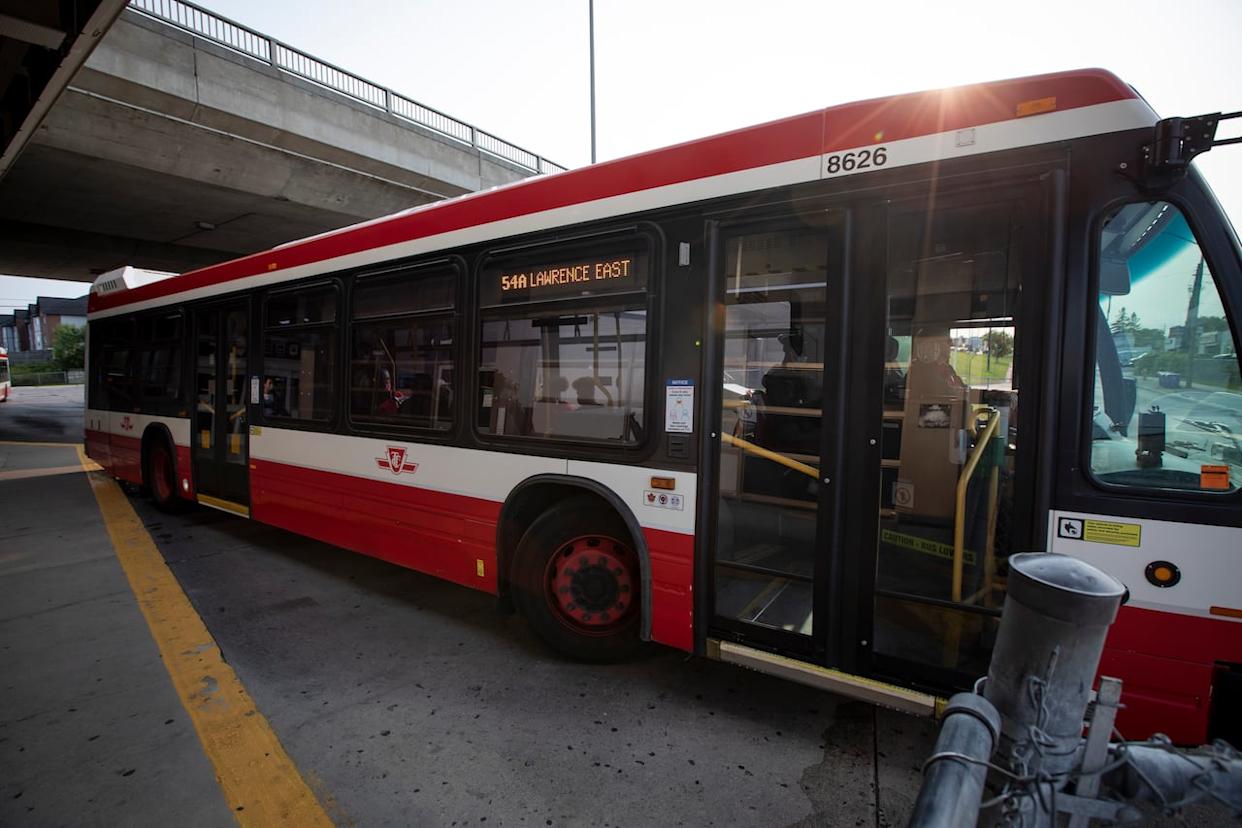Some TTC workers now using body-worn cameras

Some fare inspectors and special constables who work for the TTC are using body-worn cameras as of Monday as part of a pilot project, the transit agency says.
There are 20 inspectors and 20 constables wearing the cameras, which they are supposed to activate when they interact with customers in specific situations, the TTC said.
"Body-worn cameras and in-car cameras are not intended for general 24-hour recording," reads an update posted on the TTC website on Monday.
A revised use-of-force policy is now also in effect, which emphasizes "the importance of de-escalation as an alternative to use of force for Special Constables," the TTC said in the update.
"Together these are aimed at fostering transparency, accountability and building public trust within our organization."
Angela Gibson, TTC's executive director of fare technology and system stewardship, said the cameras will record video and audio of interactions.
The TTC is also putting in-car cameras onto 14 special constable vehicles.
The agency's board approved the new policies six years after 26 recommendations were made by the city's ombudsman. Those recommendations stemmed from an incident in which a Black teenager was tackled and pinned to the ground by three TTC fare inspectors on a streetcar platform in February 2018.
Chloe Tangpongprush, spokesperson for the advocacy group TTCriders, said the group is disappointed by the use of force policy that came into effect on Monday. She said the policy doesn't clarify that force is not necessary to enforce fares and said it should explicitly make this statement.
"We strongly believe that use of force is never acceptable to enforce a $3.35 fare," she said.
Tangpongrush said the policy says use of force can be used by fare inspectors to defend themselves or to help a special constable.
"Our concern is that that still leads to a lot of grey area that needs to be rectified," she said. "We 're still concerned about the potential for discrimination or for anti-Black racism to show up in this."
Funding for the body-worn camera and in-car camera systems are included in the TTC's 2023-2032 capital budget, and amounts to a cost of just over $1.2 million.


